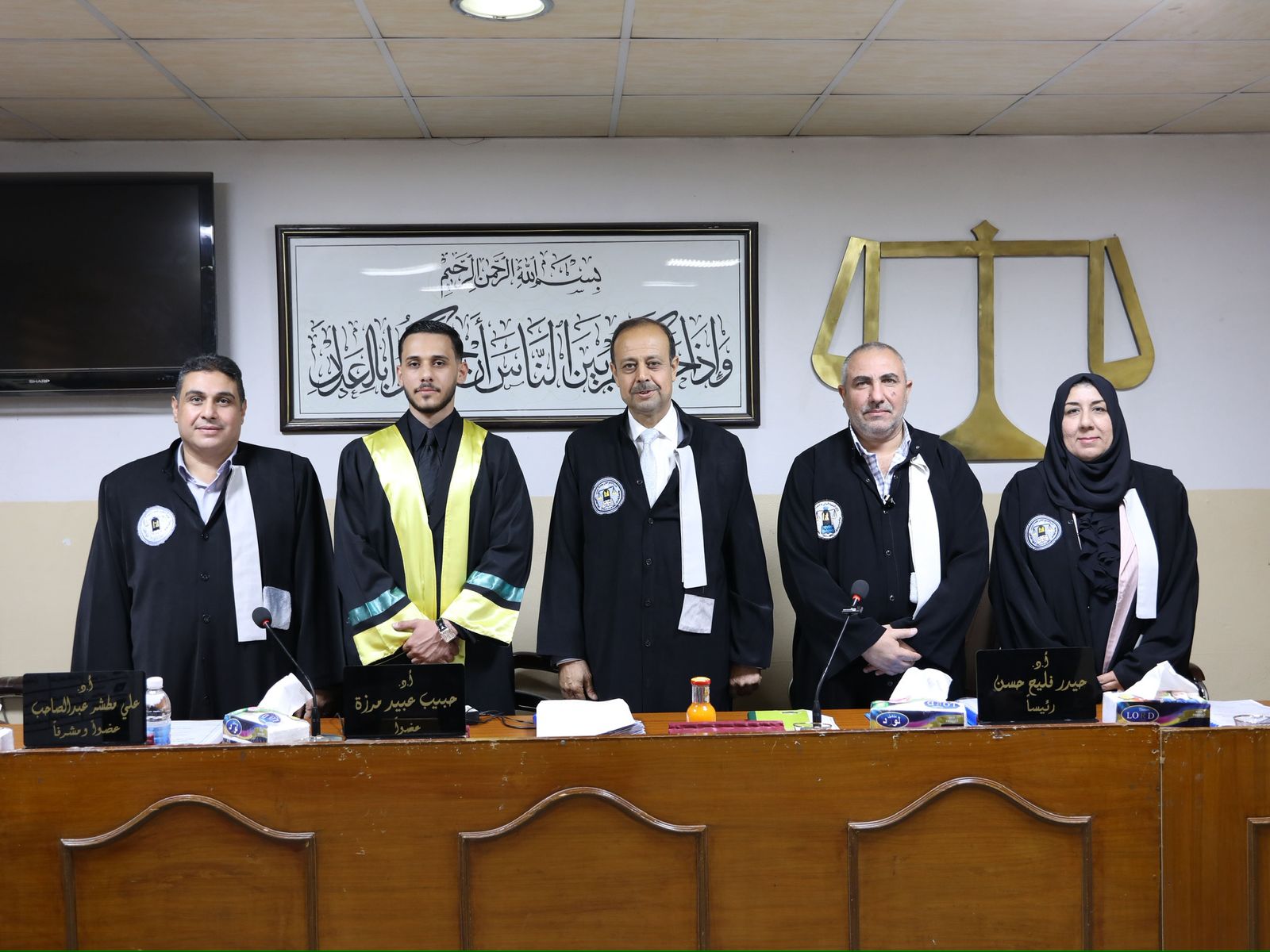The College of Law at the University of Baghdad discussed a master’s thesis entitled “The Theory of the Human Proxy in Establishing Civil Liability for Damages Caused by Smart Machines” by student Haider Alaa Abdul-Hussein, on Thursday, September 18, 2025, at the Model Court Hall.
The discussion committee consisted of the following professors:
-
Prof. Dr. Haider Faleh Hassan (Chairman)
-
Prof. Dr. Habeeb Ubaid Mirza (Member)
-
Assoc. Prof. Dr. Nada Abdul-Kadhim Hussein (Member)
-
Prof. Dr. Ali Mutashar Abdul-Sahib (Member and Supervisor).
The thesis aimed to identify the unique features of smart machines, to highlight the shortcomings of traditional theories of civil liability in addressing damages caused by these machines, and to analyze the theory of the human proxy as derived from the European Parliament’s 2017 Resolution on Civil Law Rules on Robotics, viewing it as an attempt to fill the gaps left by classical theories.
The study was divided into three chapters: the first explored the concept of smart machines; the second evaluated traditional theories of civil liability concerning damages caused by smart machines; and the third analyzed the theory of the human proxy in establishing such liability.
The thesis concluded with several recommendations, most notably:
-
It proposes that the Iraqi legislator benefit from the European legislator’s experience under the amended directive on defective products liability, by incorporating smart systems within the definition of “product.” This would include imposing disclosure obligations to facilitate the plaintiff’s claim, and expanding the concept of defect by holding the producer liable for risks associated with the operation of smart machines even after they are placed on the market, given the producer’s degree of control over their activity.
-
It recommends drawing on the European Parliament’s 2020 resolution on civil liability for damages caused by artificial intelligence systems, by distributing liability between the front-end and back-end operators of smart machines, and establishing their liability on an objective basis, supported by mandatory insurance and a complementary compensation fund.

